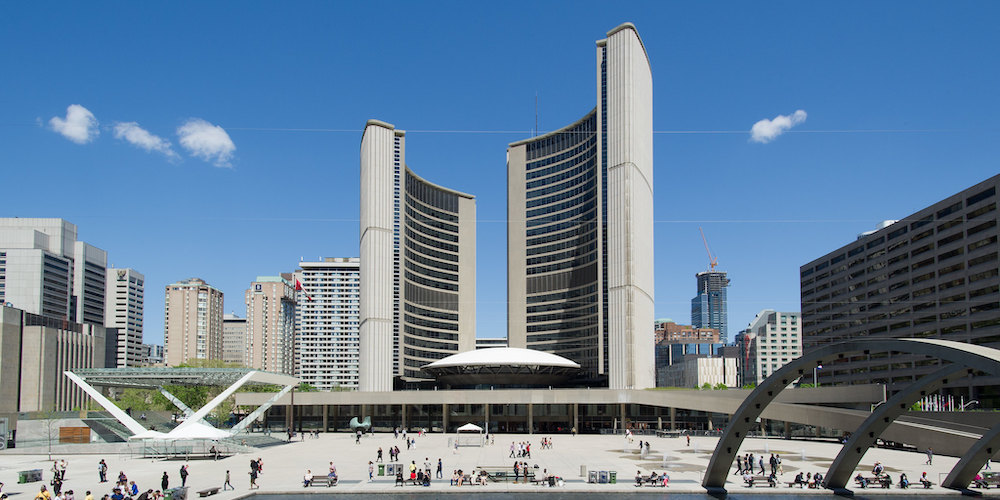The Toronto Black Food Sovereignty Plan (TBFSP) is set to go before Toronto City Council on Friday, October 1. It is the first plan of its kind; developed to address Black food insecurity and enshrine Black food sovereignty in Toronto policy, programming, and institutions.
TBFSP is the culmination of years of dedicated work by a wide array of Black community members who diligently advocated for funding and space for urban gardens, affordable food, food and nutrition education programs, as well as local Black-led food banks.
Food sovereignty is a holistic, healthy and sustainable approach for communities to address chronic food insecurity. Black food sovereignty embraces the right of Black people to healthy and culturally-appropriate food produced through ecologically sound and sustainable methods. It includes their right to define their own food and agriculture systems and to build their own institutions to advance community capacity and resilience for access to food. And, it is urgently needed.
Black Torontonians make up nine per cent of the population, yet they are 32 times more likely to be food insecure. COVID-19 cases within the Black community were 26 per cent of the population at the time of developing the TBFSP. These statistics lay bare the challenges faced by Toronto’s Black community including structural racism in the health care system and inequities in outcomes resulting from the lack of access to culturally appropriate foods and wellness programs.
Black neighbourhoods are veritable food apartheids where the dearth of grocery stores is filled by expensive variety stores and an overabundance of fast-food restaurants setting the community up for life-long chronic health issues. The TBFSP considers food a public health issue for Black people.
None of this is new to Black Torontonians. In fact, 26 years ago the African FoodBasket (AFB) was created specifically to address Black food sovereignty concerns. Winston Husbands, a long-time volunteer with AFB who is also working on the TBFSP, identifies with the overarching mission and wants to be part of the solution to endemic food insecurity.
Husbands says Black food sovereignty is not only the right to healthy, culturally-appropriate food and the right to be the stewards of that process, “But it also needs appropriate action through policies, programs and institutions. The community must have some measure of control over sourcing which can include growing the food, access to land, and input on how the food gets into our communities.”
Unconventional grassroots and emerging Black-led and Black-serving organizations consistently experience lower funding that makes sustainable, long-term programing and services impossible to maintain. As a result, it creates a system that simply responds as best it can during emergencies like the current pandemic. Presently, 36 per cent of Black food organizations expect to run out of funds within the next six months.
Anan Lololi, executive director of African FoodBasket approached the city two years ago after the Anti-Black Racism Unit was established. He wanted to create a partnership to ensure his community was included in consultations. That initial dialogue evolved into the TBFSP with working groups meeting once a week to discuss long range plans.
For Lololi it’s important that, “The Black community become food secure through intentional programming that is not only self-sustaining but also self-determining.”
Black communities in Toronto have historically had limited access to community gardens, green space and tree canopy cover leaving them more vulnerable to extreme weather events that further imperil food security.
Food banks began springing up in the 1980s as a short-term emergency fix for hunger with little regard for cultural appropriateness let alone nutrition. But demand keeps growing especially among the working poor who are unable to cover the costs of housing, transportation, medication, and child care without giving up something and that something is usually food.
Currently, 28 per cent of Black households in Toronto are food insecure. That means 36 per cent of Black children don’t know where their next meal is coming from. Black children experience food insecurity at a rate 3.5 times higher than white children.
Aina-Nia Grant, Director of Community Resources with the City of Toronto, sees the city acting as the anchor for the TBFSP while the Black community informs, develops and leads the multi-departmental initiative. Implementation is set to launch in early 2022.
Grant says, “This is such a critical piece of Black health. This will begin to shift and embed Black sovereignty in what, when and how we eat. I’m very excited to see the project come this far from only a conversation and a vision.”
Husbands knows the TBFSP will continue to evolve over the long-term and he is committed to the process of improving food sovereignty within his community.
Toronto City council will vote on the TBFSP Friday, October 1st.
Doreen Nicoll is a freelance writer, teacher, social activist and member of several community organizations working diligently to end poverty, hunger and gendered violence.



